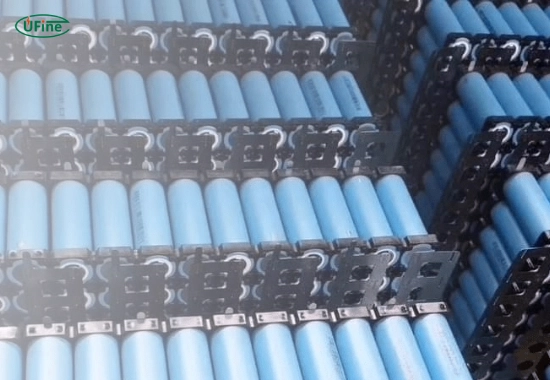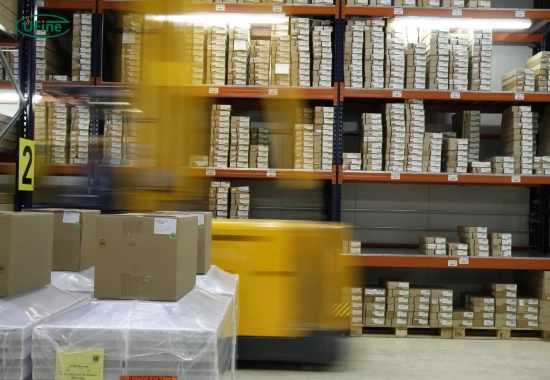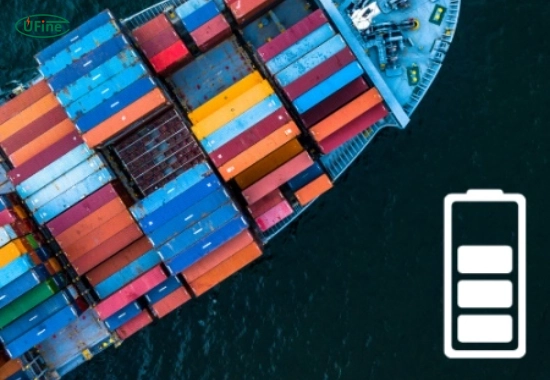
- Part 1. What is a bulk battery order?
- Part 2. Why do businesses order batteries in bulk?
- Part 3. What are the shipping challenges with bulk battery orders?
- Part 4. How are bulk batteries packaged for safety?
- Part 5. What storage rules apply to bulk battery inventory?
- Part 6. What is hazmat compliance for battery shipping?
- Part 7. How do you choose the right carrier for bulk battery shipping?
- Part 8. What regulations affect international battery shipping?
- Part 9. How do you manage returns and defective bulk batteries?
- Part 10. What are the environmental responsibilities of bulk battery buyers?
- Part 11. FAQs about bulk battery
Ordering bulk battery shipments involves more than just clicking “buy.” From handling hazardous materials to managing safe storage, businesses must navigate a maze of logistics. How do companies manage shipping, storage, and compliance when ordering batteries in bulk? Simply put, they follow strict safety rules, use proper packaging, and carefully plan every step.
In this guide, we’ll explain the logistics of bulk battery orders, covering everything from transportation to legal compliance. Whether new to battery procurement or looking to scale up your supply chain, this article will help you make smarter, safer decisions.
Part 1. What is a bulk battery order?
A bulk battery order refers to purchasing many batteries simultaneously, typically for commercial, industrial, or resale purposes. These may include lithium-ion batteries, lead-acid batteries, or rechargeable cells used in tools, vehicles, solar systems, and electronics.
Bulk orders often involve pallet-sized shipments or container loads. Due to the nature of batteries, especially those containing lithium, they require careful planning to meet safety, legal, and environmental standards.
Part 2. Why do businesses order batteries in bulk?
There are several reasons why businesses choose to order batteries in large quantities:
- Cost savings: Buying in bulk reduces per-unit costs.
- Consistent supply: Ensures availability during peak demand.
- Operational efficiency: Reduces time spent on repeat purchases.
- Customization: Bulk orders make it easier to request specific configurations or packaging.
- Better vendor relationships: Long-term agreements like priority service or extended warranties may bring benefits.
Part 3. What are the shipping challenges with bulk battery orders?
Shipping large quantities of batteries, especially lithium-based ones, presents a unique set of challenges:
- Hazardous classification: Lithium batteries are often classified as “dangerous goods.”
- Strict labeling requirements: Improper labeling can lead to fines or shipment rejections.
- Temperature sensitivity: Batteries can degrade or become hazardous under extreme temperatures.
- Carrier restrictions: Not all shipping providers accept large battery shipments.
- International regulations: Cross-border shipments must comply with IATA, IMDG, and local laws.
Companies often work with specialized freight forwarders or hazmat-certified carriers to overcome these.
Artikel Terkait: Should You Buy Batteries in Bulk?
Part 4. How are bulk batteries packaged for safety?
Proper packaging is key when it comes to battery logistics. Here’s what safe packaging typically includes:
- UN-certified packaging: Required for dangerous goods.
- Inner packaging: Separates individual cells to prevent contact.
- Cushioning: Protects against vibration and impact.
- Fire-resistant containers: Especially for lithium-ion batteries.
- Clear hazard labeling: Includes battery type and handling warnings.
Tip: Don’t reuse old packaging. Damaged or incorrect materials can lead to leakage, fires, or rejection at customs.
Part 5. What storage rules apply to bulk battery inventory?
Storing batteries in bulk isn’t as simple as stacking them on a shelf. Unsafe storage can result in leaks, fires, or environmental damage. Here’s how businesses store batteries safely:
- Climate control: Store in cool, dry areas.
- Fire safety: Use fireproof cabinets or battery storage systems.
- Segregation: Keep different types and voltages apart.
- Ventilation: Prevents gas build-up from older battery types.
- Regular inspections: Look for swelling, corrosion, or damage.
Bonus tip: Train your staff on safe handling and emergency procedures.
Part 6. What is hazmat compliance for battery shipping?
Hazmat compliance refers to following legal and safety standards for transporting hazardous materials. Batteries—especially lithium-ion—are often listed under UN3480 or UN3481 codes.
To comply, companies must:
- Use certified packaging
- Have a hazmat-trained shipping team
- Include Material Safety Data Sheets (MSDS)
- Apply correct labels and documentation
- Follow carrier and international protocols
Non-compliance can lead to shipment delays, fines, or worse, accidents.
Part 7. How do you choose the right carrier for bulk battery shipping?
Not every logistics provider can handle batteries. When selecting a carrier, look for:
- Hazmat certification
- Experience with battery shipments
- Knowledge of IATA, DOT, and IMDG regulations
- Availability of tracking and insurance
- Good reputation for on-time and damage-free deliveries
Pro tip: Ask your supplier if they have preferred carriers—they often partner with experienced providers.
Part 8. What regulations affect international battery shipping?
When batteries cross borders, things get more complicated. You’ll need to understand rules like:
- IATA (air transport): Covers labeling, packaging, and documentation.
- IMDG (sea transport): Applies to ocean freight.
- Customs declarations: Batteries may require special codes or permits.
- Country-specific rules: Some nations ban certain battery imports.
For example, China, the EU, and the U.S. have different battery shipping rules. Working with an experienced customs broker helps avoid delays.
Artikel Terkait: 7 Critical Elements on a Lithium Battery Shipping Label
Part 9. How do you manage returns and defective bulk batteries?
Returns and defective batteries are part of the game. Here’s how to handle them safely:
- Label clearly as “used” or “defective”
- Use appropriate return packaging
- Follow reverse logistics guidelines
- Keep records of disposal or recycling
- Work with a certified e-waste recycler
Never ship damaged batteries without consulting a hazmat expert—they can be unstable or even explosive.
Part 10. What are the environmental responsibilities of bulk battery buyers?
Bulk buyers are often held accountable for proper battery recycling and disposal. Here’s what you need to do:
- Partner with certified recyclers
- Follow local disposal laws
- Avoid landfilling batteries
- Educate staff and customers on battery return programs
- Keep documentation for inspections or audits
Sustainable practices aren’t just good for the planet but also build consumer trust.
Part 11. FAQs about bulk battery
What is considered a bulk battery order?
A bulk battery order typically involves purchasing large quantities of batteries for commercial or industrial use, often by the pallet or container.
Can airship lithium batteries?
Yes, but only under strict IATA regulations. They must be properly packaged, labeled, and declared as hazardous goods.
How long can bulk batteries be stored safely?
Depending on type and conditions, most batteries can be stored for 6 months to 2 years. Always follow the manufacturer’s guidelines.
What happens if I ship batteries without hazmat compliance?
Non-compliance can lead to fines, shipment delays, or even transport bans. It also increases the risk of accidents.
Are there eco-friendly options for bulk battery disposal?
Yes. Many certified recyclers offer sustainable battery disposal. Some suppliers also offer take-back programs.
Related Tags:
More Articles

A Complete Guide to the Best Batteries for Flashlights
Compare the best batteries for flashlights, including AA, AAA, 18650, 21700, CR123A. See which battery offers the best brightness, runtime, and reliability.
How Long Do Rechargeable AA Batteries Last?
How long do rechargeable AA batteries last? Compare NiMH and lithium AA lifespan, recharge cycles, key factors, and performance vs alkaline batteries.
How Much Current Can a 9V Battery Really Supply?
Discover how many amps a 9V battery can supply, its actual current output, discharge rate, and capacity for alkaline, lithium, and rechargeable 9V batteries.
12V STD vs 12V AGM: Meaning, Differences, and Which Is Better
Understand what STD and AGM batteries mean, their key differences, and which 12V battery fits your needs best in 2026.
Battery Reconditioning Explained: A Comprehensive Guide
Learn what battery reconditioning is, how it works, how long it takes, and when reconditioning chargers are used for lead-acid and lithium-ion batteries.





